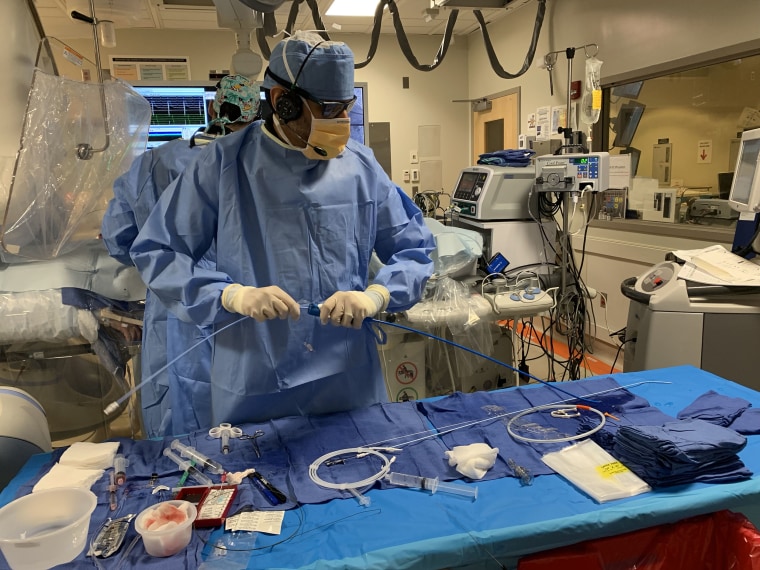Seemingly out of nowhere, Abby McGillvray, 20, a college student from Boston, began fainting. The first time it happened she was trying on a prom dress.
"I just collapsed," she told TODAY. "My mom said she watched my face turn like white as a ghost, my eyes roll in the back of my head. And then she just kind of tried to catch me as I collapsed."
From there, her fainting became increasingly frequent, eventually happening on a weekly and sometimes daily basis.
The last time she fainted, McGillvray was in the bathroom — and she developed a concussion. "I was on the floor," she said. "I had my phone with me. And I knew that I woke up 15 minutes later, I was just very freaked out."
McGillvray's case turned out to be a severe case of neurocardiogenic vasovagal syncope, a condition in which people faint due to a sudden drop in blood pressure after exposure to certain triggers, the Mayo Clinic explains. Those triggers might include standing for a long time or having blood drawn. But, in some cases, there is no specific trigger.
"My heart's racing, I get really, really sweaty. I get really dizzy. The ringing in my ears gets really loud too," McGillvray described. "And then the last part before I faint is tunnel vision."
For most people, vasovagal syncope is not harmful, the Mayo Clinic says, although people may get injuries when they faint and fall. And, of course, it can always be jarring and stressful to lose consciousness.
In McGillvray's case, her fainting was frequent and severe enough that it began to take a toll on the rest of her life. "I couldn't drive. I couldn't eat certain foods. I couldn't hang out with my friends," she said. Flying became a risk, as did hiking and being in large crowds. She eventually had to avoid stressful environments like that "at all costs because there was just such a higher chance that I will collapse," McGillvray said.

She sought help from Dr. Sunil Kapur, a cardiac electrophysiologist in the division of cardiovascular medicine at Brigham and Women’s Hospital in Boston. Essentially, a miscommunication between McGillvray's heart and brain was causing her heart to routinely stop.
"For whatever reason, her brain was telling her heart incorrectly, inappropriately to just slow down and then pause," Kapur explained. That pause might last for nine, 10, or even up to 20 seconds at a time.
Although "there have been some medicines that have been studied in the past" to treat this type of issue, Kapur said, they've had "kind of mixed results."
Some people with vasovagal syncope — including McGillvray's mother — receive a pacemaker to keep their heart functioning properly. But Kapur said doctors try to avoid implanting those devices in younger people if they can avoid it.
Ultimately, for a case like McGillvray's, "there's no clear treatment, there's no clear cure," Kapur said.
So Kapur attempted a procedure that had only been performed a few times previously. During the four-hour surgery, doctors located the misfiring nerves and cauterized them. They confirmed that the procedure had worked thanks to a heart monitor they implanted under McGillvray's skin.
"It was very, very clear that we had changed how her heart was functioning and how the brain was controlling it," Kapur explained.
While McGillvray did need to go back for a follow-up appointment, the procedure "gave me my future back," she said. She's now back in school on her way to a nursing degree. "I'm very excited. I'm so thankful," she said.
